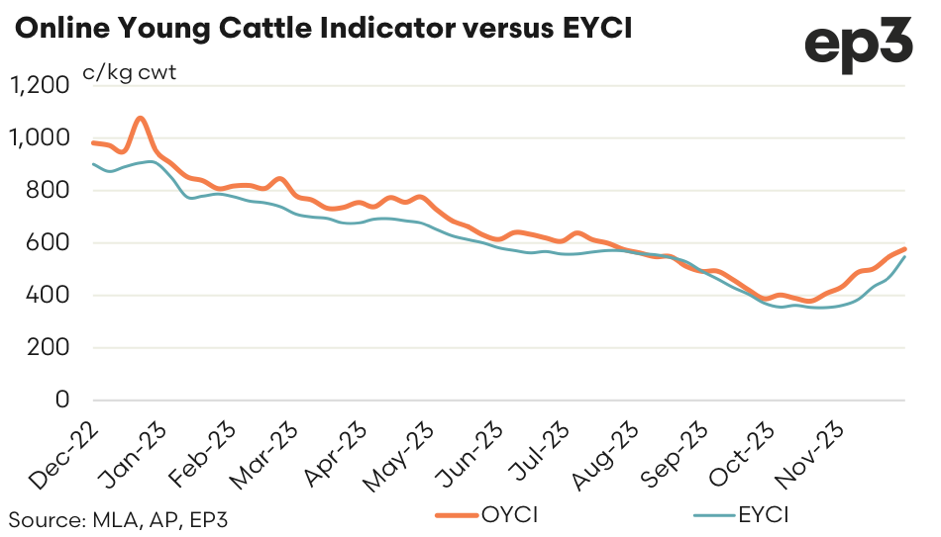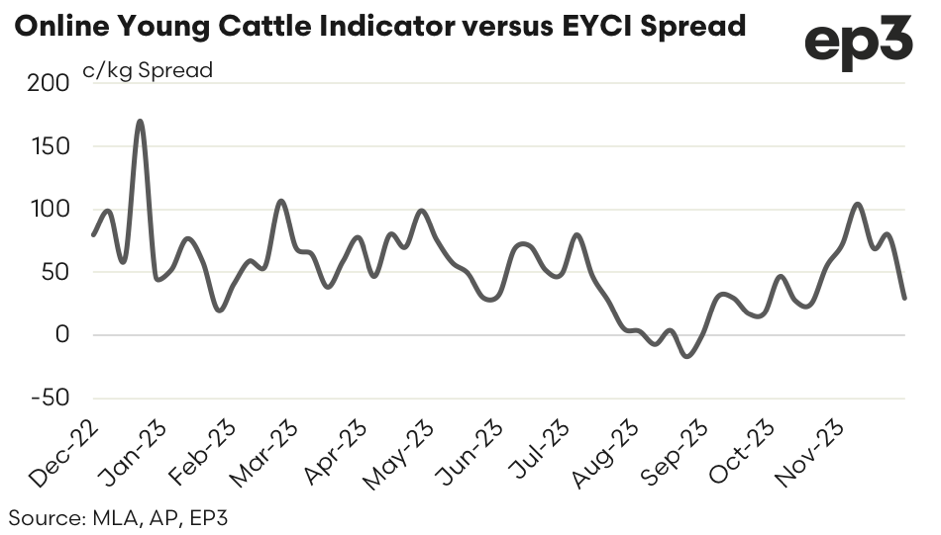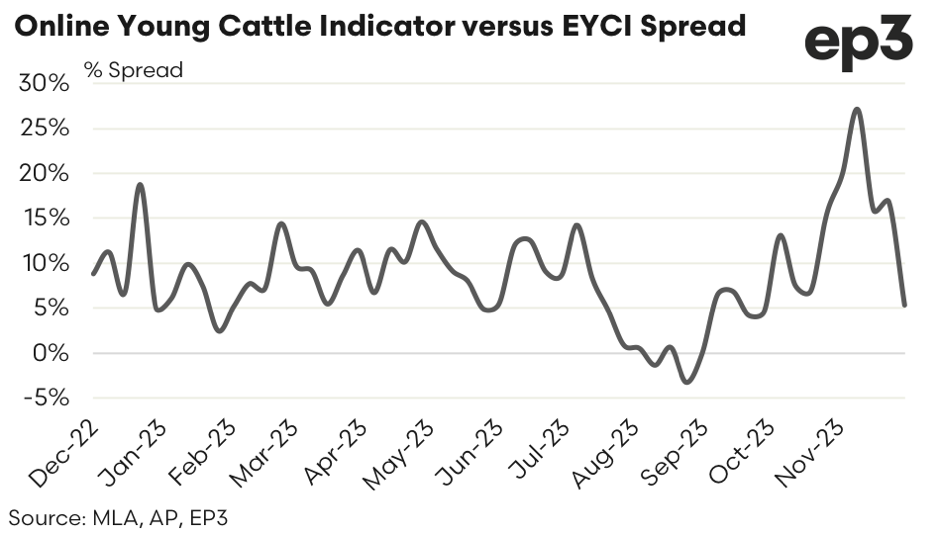OYCI, OYCI, OYCI, oi, oi, oi

Market Morsel
Meat & Livestock Australia (MLA) have begun reporting daily price information on online young cattle sales with reference to their Online Young Cattle Indicator, or OYCI. Effectively it is an online version of their saleyard Eastern Young Cattle Indicator also known as the EYCI. At the moment MLA are only utilising online data from AuctionsPlus, but they plan to expand their data collection to other online platforms as the price information becomes available.
Like the EYCI, the OYCI is price is a rolling seven day average price of cattle sales for weaner and yearling heifers and steers that weigh between 200-400 kg liveweight. The OYCI collects data from non-station mated livestock that have a fat score between 1 to 5. Meanwhile the EYCI collects data from livestock with muscle/fat scores between C2 and C3.
Weekly price analysis for the two indicators show that they share a fairly close trend, although the OYCI has tended to run at a slight premium most of the time during the past year.
The OYCI is reported on a cents per kilogram liveweight basis, whereas the EYCI is reported on a cents per kilogram carcass weight basis. In order to convert OYCI pricing to carcass weight values we adjusted the liveweight pricing by a dressing yield of 57%.
Dressing percentages for young cattle with fat scores ranging between 1-5 as collected by the OYCI can range between 49% to 59% and is also influenced by the muscle score of the processed animal. On balance we felt that a dressing yield of 57% was an appropriate level to adjust OYCI pricing from liveweight to carcass weight basis.
A comparison of the price spread in cents per kilogram carcass weight shows that over the past year the OYCI has mostly ranged between a 0 to 100 cent premium to the EYCI. Indeed over the last year the average c/kg spread has been a premium of nearly 52 cents in favour of the OYCI.
However, a more appropriate way of looking at price spreads, particularly when prices have changed so much over the last year is comparing them on a percentage basis. Using this method the spread calculation means that the spread is not distorted by the underlying price value of the animal being compared.
For example, using percentage calculations means that a 40 cent premium on cattle priced at 400 cents per kilogram is the same as a 90 cent premium on cattle priced at 900 cents per kilogram.
Analysis of the price spread between the OYCI and the EYCI over the last year on a percentage basis highlights that for most of the time it has ranged between 0% to 20% premium in favour of the OYCI. The average percentage spread over the last year as been a premium of almost 9% for the OYCI over the EYCI.
In recent months the OYCI showed a faster pace of price recovery than the EYCI, allowing the percentage spread to widen to premiums beyond 25%. On a cent per kilogram basis the premium spread of the OYCI at this time was nearer to 100 cents. While this was still a higher than average premium, and at the upper end of the historic range, it wasn’t near the peaks seen earlier in the season that were in excess of 150 cents.
However, given the underlying price of the OYCI and the EYCI at the time was nearer to 400 cents per kilogram carcass weight a premium price spread of 100 cents in favour of the OYCI was pretty significant in percentage terms.
In recent weeks, with the young cattle market recovering in both the online and physical saleyard the premium spread of the OYCI has reverted to levels that are more consistent with the averages seen over the last year.
As the dataset for the OYCI expands and more online markets are factored into its calculation, we’ll gain more capability to analyse how its spreads and prices fluctuate throughout different seasons. This will allow us to determine whether there are any consistent patterns for prices/spreads or if changes in the cattle cycle, like the transition from herd downsizing to herd expansion, impacts upon these market indicators.



